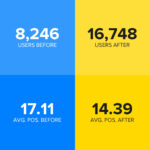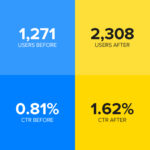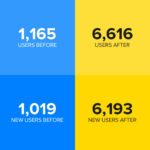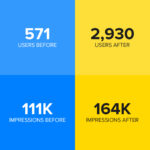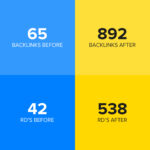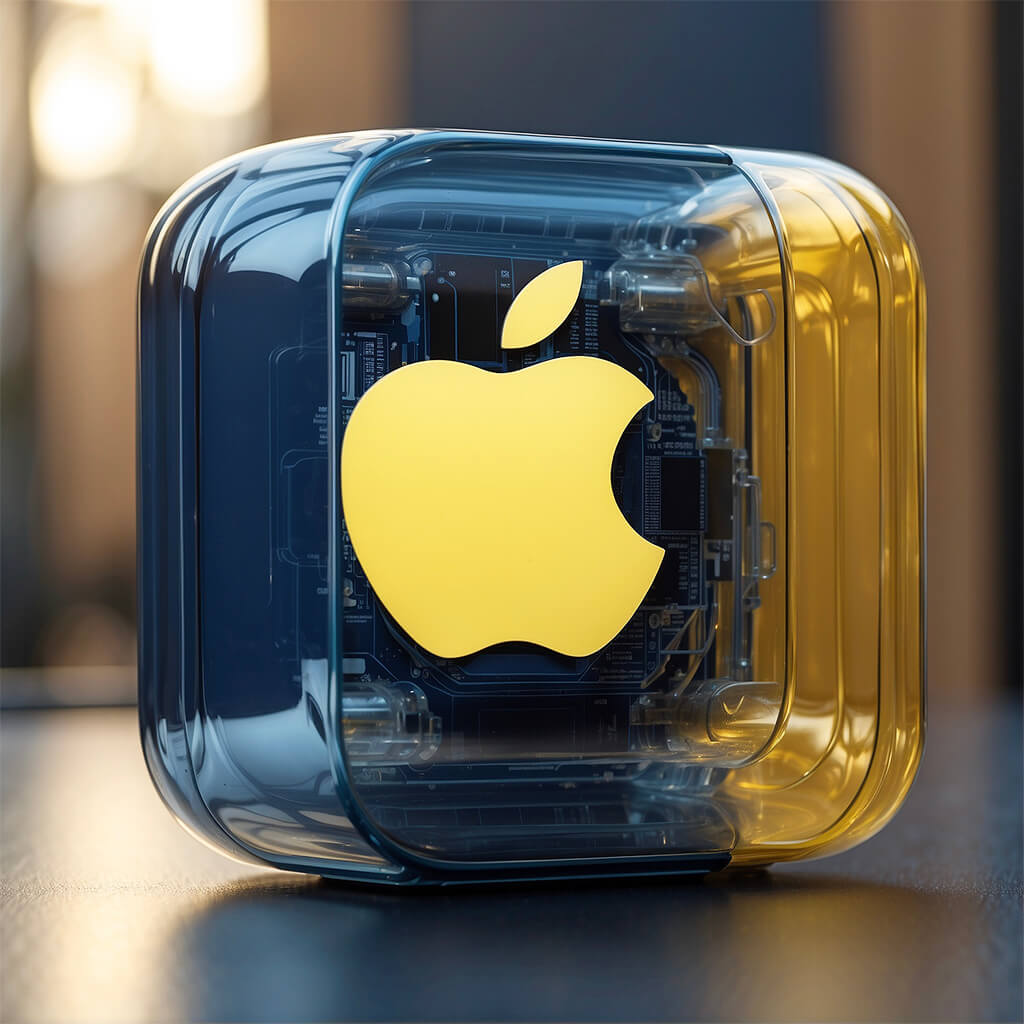Contents:
- Introduction to PPC for Internet Marketers
- Understanding the Basics of PPC
- Key PPC Models Explained
- Diverse PPC Campaigns and Their Unique Advantages
- Top Strategies to Monetize PPC
- Diving Deep: Google Ads and Its Mechanism
- Crafting an Effective PPC Keyword Strategy
- Leading PPC Platforms in the Digital World
- Pros and Cons of PPC Marketing
- Elevate Your Skills: Becoming a Digital Marketing Pro
- Frequently Asked Questions (FAQs)
Introduction to PPC for Internet Marketers
Hook: A decade ago, PPC was just another advertising model. Today, it’s a goldmine for internet marketers. But how can you tap into its potential?
In the ever-evolving world of digital marketing, there’s one strategy that has consistently proven its worth: Pay-Per-Click (PPC) advertising. For internet marketers, it’s not just about getting your ads out there; it’s about ensuring every click counts, every lead is captured, and every dollar spent yields a return.
So, why is PPC such a buzzword among internet marketers? Simple. It offers a unique blend of precision, scalability, and immediacy. Imagine being able to target your ideal customer at the exact moment they’re searching for what you offer. That’s the power of PPC.
But here’s the catch: while the concept of PPC might sound straightforward, mastering it is a whole different ballgame. It’s not just about setting up an ad and waiting for the clicks to roll in. It’s about understanding your audience, crafting compelling ad copies, optimizing your bids, and continuously refining your strategy based on data-driven insights.
For internet marketers ready to dive deep into the world of PPC, this journey promises not only increased visibility but also a tangible boost in conversions and revenue. As we delve further into this guide, we’ll unravel the intricacies of PPC, ensuring you’re equipped with the knowledge and strategies to make the most of every click.
Remember, in the world of digital marketing, it’s not about who shouts the loudest, but who targets the smartest. And with PPC, you’re not just targeting; you’re hitting the bullseye every single time.
Understanding the Basics of PPC
In the vast ocean of digital marketing, PPC stands as a towering lighthouse, guiding marketers toward tangible results. But what exactly is this beacon, and how does it illuminate the path to success?
What is PPC?
At its core, Pay-Per-Click (PPC) is as straightforward as it sounds: you pay each time someone clicks on your ad. But don’t be fooled by its simplicity. Behind this basic concept lies a world of strategy, analysis, and optimization.
The Symbiotic Relationship:
Think of PPC as a dance between advertisers and search engines. Advertisers want visibility, and search engines want to provide users with the most relevant results. When a user types in a query, the search engine sifts through countless ads to display those that are most pertinent and valuable. And here’s where the magic happens: instead of paying for mere visibility, advertisers only shell out when a user is interested enough to click on their ad. It’s a win-win, with advertisers getting targeted traffic and search engines ensuring user satisfaction.
But the dance doesn’t end there. The world of PPC is dynamic, with algorithms constantly evolving and user behaviors shifting. This means that while the foundation of PPC remains consistent, the strategies to master it are ever-changing.
The Essence of PPC:
It’s not just about getting the most clicks; it’s about getting the right clicks. It’s about understanding user intent, crafting ads that resonate, and ensuring that every click leads to a meaningful interaction, be it a sale, a sign-up, or a download.
In the chapters to come, we’ll delve deeper into the various models of PPC, the diverse campaigns you can run, and the strategies to ensure every penny spent maximizes your return. But for now, remember this: PPC is more than just an advertising model; it’s a tool that, when wielded correctly, can transform your digital marketing game.
Key PPC Models Explained
In the realm of PPC, not all clicks are created equal. And as marketers, understanding the different models that govern these clicks is paramount. It’s like choosing the right tool for the job; the better your understanding, the more precision you bring to your campaigns.
Flat-Rate Model: A Fixed Approach to PPC
Imagine entering a café and knowing exactly how much your favorite latte will cost every single time. That’s the Flat-Rate Model for you. Here, the advertiser and the publisher agree upon a fixed amount for each click. It’s predictable, straightforward, and often favored for display advertising on specific websites. The catch? It might not always offer the best value, especially if the agreed rate doesn’t align with the actual market value of the click.
Bid-Based Model: The Competitive Edge in PPC
Now, picture an auction house, where each bid determines the value of an item. The Bid-Based Model operates on a similar principle. Advertisers compete against each other, placing bids on specific keywords or phrases that resonate with their target audience. When a user searches for these keywords, the search engine plays a matchmaker, displaying ads based on the bids and the ad’s relevance. The highest bidder with the most pertinent ad usually takes the top spot. But remember, it’s not just about outbidding competitors; it’s about ensuring the bid aligns with the potential value of the click.
The Balancing Act:
While the flat rate offers predictability, the Bid-Based model provides flexibility. The choice between them isn’t about picking one over the other; it’s about understanding which model aligns best with your campaign goals, target audience, and budget.
In the end, PPC is an art as much as it is a science. It’s about blending strategy with intuition, and data with creativity. As we navigate further into the world of PPC, we’ll uncover more layers, strategies, and insights, ensuring that every click not only counts but also converts.
Diverse PPC Campaigns and Their Unique Advantages
In the vibrant tapestry of PPC, various campaigns stand out, each with its distinct hue and pattern. For marketers, understanding these campaigns is akin to an artist recognizing the nuances of every color on their palette. Let’s dive in and explore these campaigns, unraveling the unique advantages they bring to the canvas of digital marketing.
- Search Ads: Targeting Active Searchers
Imagine standing at a crossroads, ready to guide those seeking direction. That’s precisely the role of Search Ads. They appear on search engine results pages (e.g., Google, Bing) when users punch in relevant keywords. The brilliance of Search Ads lies in their timing; they target users actively seeking specific products or services, dramatically amplifying the chances of conversions.
Advantage: Direct response marketing at its best, driving laser-focused traffic to specific landing pages.
- Display Ads: Broadening Your Brand’s Horizon
Think of Display Ads as billboards on the digital highway. These encompass banner, image, or interactive ads displayed across various websites within an ad network. While they might not always target active searchers, they cast a wider net, enhancing brand visibility.
Advantage: A masterstroke for building brand awareness, retargeting website visitors, and promoting visually rich content.
- Shopping Ads: Showcasing Products Directly
Ever walked past a store window and been captivated by a product on display? Shopping Ads replicate this experience in the digital realm. They present product-based ads with images, prices, and other pertinent details directly on search engine results, making them a goldmine for e-commerce businesses.
Advantage: Tailor-made for e-commerce platforms, driving sales by attracting users with a high purchase intent.
- Video Ads: Storytelling Through Visuals
In the world of PPC, Video Ads are the captivating storytellers. Displayed on platforms like YouTube, they weave narratives that engage and enthrall audiences, making them perfect for brand messaging and showcasing products in action.
Advantage: A powerhouse for brand awareness, storytelling, and presenting products or services in a dynamic format.
- Remarketing/Retargeting Ads: Re-engaging Potential Customers
Imagine a friendly nudge to those who showed interest but drifted away. Remarketing Ads do just that. They target users who’ve previously visited your site but didn’t convert, serving as gentle reminders of what they might be missing out on.
Advantage: A strategic move to convert bounced visitors, reinforcing brand messages, and ushering previous visitors back into the fold.
- Social Media Ads: Tapping into User Behavior
Social Media Ads are the savvy conversationalists of the PPC world. Displayed on platforms like Facebook and Instagram, they harness detailed user data for laser-focused targeting, enabling brands to engage with specific audience segments based on interests, behaviors, and more.
Advantage: Ideal for building brand rapport, generating leads, and initiating meaningful conversations with distinct user groups.
- App Install Ads: Boosting Mobile Presence
In the mobile-centric world, App Install Ads are the torchbearers. They drive installations of mobile applications, often appearing within other apps or as sponsored content in app stores.
Advantage: A boon for mobile app developers, propelling app downloads and expanding user bases.
In the grand scheme of PPC, each campaign type offers a unique advantage. The key lies in understanding your goals, recognizing which campaigns align with them, and then weaving them together to create a holistic PPC strategy that resonates, engages, and converts.
Top Strategies to Monetize PPC
In the bustling marketplace of digital marketing, PPC stands as a formidable stall, beckoning marketers with the promise of rich returns. But how does one ensure that every click not only resonates but also rings the cash register? Let’s embark on a journey, unveiling top strategies to monetize PPC, ensuring that your campaigns are not just seen, but also lucratively rewarded.
- Leveraging Google AdSense for Passive Income
Picture a bustling street where every passerby glances at your storefront. Google AdSense is akin to that, allowing you to display ads on your website and earn every time these ads are viewed or clicked.
Advantage: A steady stream of passive income, especially for websites with high traffic and relevant content.
- Freelancing: Offering PPC Services to Clients
In the vast ocean of digital marketing, many businesses are adrift, seeking expert guidance. By honing your PPC skills and offering them as freelance services, you become the sought-after lighthouse, guiding businesses to success.
Advantage: Flexibility in choosing projects, the potential for high earnings, and the joy of making a tangible difference for clients.
- Crafting High-Converting Landing Pages
Imagine a grand theater where the play is captivating, but the stage is lackluster. A PPC ad might draw users in, but it’s the landing page that seals the deal. Ensuring that these pages are optimized, relevant, and compelling is paramount.
Advantage: Boosted conversion rates, enhanced user experience, and maximized ROI for every click.
- Writing Compelling Ad Copies for Advertisers
In the world of PPC, words wield power. Crafting ad copies that resonate, engage, and compel users to take action is an art. And mastering this art can be your golden ticket.
Advantage: Higher click-through rates, increased conversions, and a competitive edge in the crowded ad space.
- In-house PPC Roles: A Stable Career Choice
For those seeking stability and growth, in-house PPC roles in companies offer a promising avenue. From strategizing campaigns to analyzing results, these roles immerse you in the world of PPC, ensuring steady income and career progression.
Advantages: Consistent income, opportunities for growth, and the chance to work on diverse, large-scale campaigns.
- Content Creation: Earning Through Ad Revenue Sharing
In the digital age, content is king. By creating engaging content – be it blogs, videos, or podcasts – and integrating PPC ads, you open doors to ad revenue sharing, ensuring that your creativity is not just applauded but also lucratively rewarded.
Advantage: Monetizing passion projects, building a loyal audience, and establishing authority in your niche.
In the grand arena of PPC, monetization isn’t just about drawing clicks; it’s about ensuring that every click translates to tangible returns. As we delve deeper into this guide, we’ll continue to equip you with insights, strategies, and tools, ensuring that your PPC campaigns are not just effective but also lucratively rewarding.
Diving Deep: Google Ads and Its Mechanism
In the vast cosmos of digital advertising, Google Ads shines as the brightest star, illuminating pathways for marketers and businesses alike. But what fuels this luminary? Let’s embark on an expedition, diving deep into the heart of Google Ads, unraveling its intricate mechanisms, and discovering how it can propel your campaigns to stellar heights.
An Overview of Google Ads
At its essence, Google Ads is the master conductor of the digital symphony, orchestrating when and where your ads appear across Google’s vast network. From search results to partner websites, from YouTube videos to mobile apps, Google Ads ensures your message reaches the right audience at the right time.
Advantage: Unparalleled reach, precision targeting, and a plethora of ad formats to choose from.
Setting Up and Optimizing Campaigns in Google Ads
Imagine crafting a masterpiece but with every brushstroke guided by data and insights. Setting up a campaign in Google Ads is akin to that. It’s not just about creating an ad; it’s about:
- Understanding Your Audience:
Who are they? What are they searching for? Google Ads offers tools like Keyword Planner to tap into these insights, ensuring your ads resonate with your target demographic.
- Crafting the Perfect Ad:
From compelling headlines to persuasive descriptions, every word counts. With Google Ads, you can A/B test different versions, ensuring your ad copy hits the mark.
- Bidding Strategically:
Google Ads operates on a bid-based model. By understanding the value of a click and optimizing your bids accordingly, you ensure maximum ROI.
- Monitoring and Refining:
The journey doesn’t end once the ad is live. Google Ads provides a treasure trove of analytics, from click-through rates to conversion metrics. By continuously monitoring these, you can refine your campaigns, ensuring they remain effective and efficient.
The Power of Extensions:
Google Ads isn’t just about text. With ad extensions, you can enhance your ads with additional information, be it phone numbers, location details, or even snippets from your website. It’s about providing users with a holistic snapshot, ensuring they have all they need to make an informed decision.
In the end, Google Ads isn’t just a platform; it’s a powerful ally. And as we continue our journey through the world of PPC, we’ll further explore strategies, tools, and insights, ensuring that you harness the full potential of Google Ads, turning clicks into conversions, and campaigns into success stories.
Crafting an Effective PPC Keyword Strategy
In the intricate ballet of PPC, keywords are the prima ballerinas, capturing the spotlight and driving the narrative. But how does one ensure that these keywords not only dance gracefully but also captivate the audience? Let’s journey backstage, unveiling the art and science of crafting an effective PPC keyword strategy, ensuring every pirouette and plié translates to clicks and conversions.
The Importance of Goal Setting
Before diving into the world of keywords, one must first define the destination. What do you aim to achieve with your PPC campaign? Is it brand awareness, lead generation, or direct sales? By setting clear, measurable goals, you lay the foundation upon which your keyword strategy will be built.
Advantage: A clear direction, ensuring every keyword chosen aligns with your overarching campaign objectives.
Tools and Techniques for Comprehensive Keyword Research
Imagine a treasure hunt, where every clue leads to a trove of potential customers. Keyword research is akin to that. By leveraging tools like Google’s Keyword Planner, SEMrush, or Ahrefs, you can:
- Discover High-Volume Keywords:
These are the terms your target audience frequently searches for. They’re the crowd-pullers, ensuring visibility and reach.
- Unearth Long-Tail Keywords:
While they might have lower search volumes, these detailed phrases often indicate higher intent, translating to better conversion rates.
- Identify Negative Keywords:
Just as important as knowing what to target is knowing what to avoid. Negative keywords ensure your ads don’t appear for irrelevant searches, saving costs and ensuring precision.
Grouping and Continuously Refining Keyword Strategies
In the symphony of PPC, keywords must be orchestrated harmoniously. By grouping related keywords and crafting tailored ad copies for each group, you ensure relevance and resonance. But remember, the world of search is dynamic. Regularly revisiting and refining your keyword strategy ensures you stay in tune with evolving user behaviors and market trends.
The Dance of Relevance and Bid Optimization
In the PPC ballet, it’s not just about choosing the right keywords; it’s about ensuring they’re showcased effectively. Balancing keyword relevance with strategic bidding ensures that your ads not only appear for the right searches but also capture prime positions, driving visibility and clicks.
In conclusion, crafting an effective PPC keyword strategy isn’t just about data and analysis; it’s about intuition and creativity. It’s about understanding your audience, anticipating their needs, and ensuring that every keyword chosen resonates, engages, and drives action.
Leading PPC Platforms in the Digital World
In the bustling metropolis of digital advertising, various skyscrapers pierce the skyline, each representing a PPC platform. But which of these towers should you ascend to get the best view of your target audience? Let’s embark on a guided tour, exploring the leading PPC platforms, and unveiling the unique vistas each offers to marketers eager to make their mark.
- Google Ads: The Colossal Titan
Dominating the cityscape, Google Ads stands as the undisputed titan of PPC platforms. With its vast reach, encompassing the Google Search Network, Display Network, and YouTube, it offers unparalleled visibility and precision.
Advantage: Access to the world’s largest search engine, diverse ad formats, and a treasure trove of analytics to refine campaigns.
- Microsoft Advertising: Bing’s Elegant Edifice
While it might not match the sheer size of Google Ads, Microsoft Advertising (formerly Bing Ads) offers its unique charm. Catering to the Bing and Yahoo search networks, it provides a fresh perspective, often with less competition and lower cost-per-click.
Advantage: A lucrative option for targeting specific demographics, especially older and high-income users predominant on Bing.
- Amazon Advertising: The E-commerce Emporium
In the bustling market district of our digital city, Amazon Advertising stands as the go-to emporium for e-commerce brands. With product display ads, sponsored products, and more, it targets users with high purchase intent right at the point of sale.
Advantage: Direct access to a vast pool of ready-to-buy consumers, making it a goldmine for e-commerce businesses.
- Facebook & Instagram Ads: The Social Spires
Towering over the social district are the twin spires of Facebook and Instagram Ads. Harnessing detailed user data, these platforms allow for laser-focused targeting, from demographics and interests to behaviors and connections.
Advantage: Immense reach combined with precise targeting, ideal for brand building, lead generation, and direct sales.
- LinkedIn Ads: The Corporate Citadel
In the business district, LinkedIn Ads stands as the citadel for B2B marketers. With its professional user base, it offers unique ad formats tailored to drive business objectives, from content promotions to sponsored InMail.
Advantage: A haven for B2B marketers, ensuring access to decision-makers and industry professionals.
In the vast landscape of digital advertising, choosing the right PPC platform is akin to selecting the perfect vantage point. It’s about understanding your goals, recognizing your audience, and ensuring that the platform chosen offers the best view of your target market, ensuring visibility, engagement, and conversions.
Pros and Cons of PPC Marketing
In the grand theater of digital marketing, PPC plays a starring role, captivating audiences with its promise of instant visibility and targeted reach. But like any lead actor, PPC comes with its own set of strengths and vulnerabilities. Let’s pull back the curtain, examining both the applause-worthy moments and the occasional missteps of PPC, ensuring marketers have a comprehensive view of the stage.
The Standing Ovations: Pros of PPC Marketing
- Quick Results: Unlike the slow burn of SEO, PPC is the firework of digital marketing. Launch a campaign today, and witness your ads shine brightly, driving traffic and conversions almost instantly.
Advantage: Ideal for businesses seeking immediate visibility, especially during promotions or product launches.
- Targeted Advertising: Imagine a spotlight that shines only on your ideal audience. With PPC’s precision targeting, from keywords to demographics and interests, you ensure your ads resonate with the right crowd.
Advantage: Maximizes ROI by focusing on users with the highest conversion potential.
- Data-Driven Decisions: PPC isn’t just about intuition; it’s a data lover’s paradise. With real-time analytics, from click-through rates to conversion metrics, marketers can continuously refine their strategies.
Advantage: Informed decision-making, ensuring campaigns remain effective and efficient.
- Budget Control: In the PPC theater, you’re the director, deciding how much you’re willing to spend. With flexible budgets and bidding strategies, you ensure that ad spending aligns with business objectives.
Advantage: Financial flexibility, allowing businesses of all sizes to benefit from PPC.
The Constructive Critiques: Cons of PPC Marketing
- Cost Implications: While PPC offers control over budgets, popular keywords in competitive industries can be pricey. Without strategic bidding and optimization, costs can escalate.
Challenge: Ensuring ROI in highly competitive niches, where cost-per-click can be substantial.
- Complexity and Learning Curve: PPC might seem straightforward, but mastering its intricacies requires time and expertise. From ad formats to bidding strategies, there’s a lot to grasp.
Challenge: The need for continuous learning, and staying updated with platform changes and best practices.
- Ad Fatigue: Just as an overplayed scene can bore theater-goers, repetitive ads can lead to ad fatigue, diminishing click-through rates and conversions.
Challenge: Regularly refreshing ad copies and visuals to maintain user interest.
- Dependence on Platform Algorithms: Just as actors rely on favorable reviews, PPC campaigns are at the mercy of platform algorithms. Changes in these algorithms can impact ad visibility and performance.
Challenge: Staying agile, adapting to platform updates, and diversifying ad strategies across multiple platforms.
In conclusion, while PPC dazzles with its potential, it’s essential to approach it with both enthusiasm and caution. By understanding its strengths and vulnerabilities, marketers can craft strategies that not only shine in the spotlight but also stand resilient against challenges, ensuring a performance that’s both memorable and rewarding.
Elevate Your Skills: Becoming a Digital Marketing Pro
In the dynamic arena of digital marketing, standing still is akin to moving backward. The spotlight constantly shifts, illuminating new strategies, tools, and trends. So, how does one not only keep pace but also lead the charge? Let’s embark on a transformative journey, charting the path to elevate your skills and ascend to the echelons of a digital marketing pro.
The Role of PPC in a Comprehensive Digital Marketing Strategy
Imagine a grand orchestra, where every instrument plays its part in harmony. In the symphony of digital marketing, PPC is a lead instrument, driving the melody with its precision and impact. But it doesn’t play solo. Integrating PPC with other strategies, from SEO to content marketing, ensures a harmonious performance that resonates with audiences.
Advantage: A holistic approach, maximizing reach, engagement, and conversions across multiple channels.
Opportunities for Further Learning and Growth
The world of digital marketing is vast, and the quest for knowledge is endless. Here’s how you can continuously sharpen your skills:
- Certifications:
Platforms like Google and HubSpot offer certifications, validating your expertise and giving you an edge in the industry.
- Workshops and Webinars:
Regularly attending industry workshops and webinars ensures you stay updated with the latest trends and best practices.
- Networking:
Joining digital marketing communities, both online and offline, allows you to connect with peers, share insights, and learn from industry leaders.
- Hands-on Experience:
Theory and practice go hand in hand. Regularly experimenting with new strategies, tools, and platforms ensures practical knowledge that’s invaluable.
Mentorship: The Guiding Light
In the journey to becoming a pro, having a mentor is like possessing a compass. By seeking guidance from industry veterans, you gain insights, avoid common pitfalls, and accelerate your growth trajectory.
Advantage: Personalized guidance, feedback, and the opportunity to learn from real-world experiences.
Staying Agile in a Dynamic Landscape
The digital realm is ever-evolving, and adaptability is the name of the game. By staying curious, embracing change, and continuously upskilling, you ensure that you’re not just a participant but a trailblazer in the digital marketing arena.
In conclusion, becoming a digital marketing pro isn’t a destination; it’s a journey. It’s about passion, perseverance, and the relentless pursuit of excellence. As you continue to elevate your skills, remember that in the world of digital marketing, the sky isn’t the limit; it’s just the beginning.
Frequently Asked Questions (FAQs)
In the vast expanse of the digital marketing universe, questions are the guiding stars, leading seekers to clarity and understanding. As we navigate the cosmos of PPC, let’s address some of the most burning queries, ensuring every marketer finds their way in this intricate galaxy.
- What exactly is Pay-Per-Click (PPC) advertising?
At its essence, PPC is the maestro of the digital ad world. It’s a model where advertisers pay a fee each time their ad is clicked. Think of it as buying visits to your site, rather than attempting to earn them organically. It’s direct, it’s targeted, and when done right, it’s incredibly effective.
- How does PPC differ from traditional advertising?
Traditional advertising, like billboards or TV spots, charges for visibility. PPC, on the other hand, is the savvy entrepreneur of the ad world – you only pay when there’s tangible action, i.e., a click. It’s a model that prioritizes results over mere exposure.
- Is PPC suitable for all businesses?
Imagine a tool so versatile that it fits the hands of a sculptor and a surgeon alike. PPC is that tool in the marketing realm. Whether you’re a startup, a local business, or a global conglomerate, PPC offers tailored solutions to meet diverse objectives, from brand awareness to direct sales.
- How do I determine my PPC budget?
Setting a PPC budget is like charting a voyage. You need to consider your destination (goals), the distance (campaign duration), and the resources at hand (overall marketing budget). Start small, analyze results, and adjust accordingly. Remember, it’s not about spending more; it’s about spending smart.
- Can I manage my PPC campaigns, or should I hire an expert?
PPC is both an art and a science. While platforms like Google Ads are user-friendly, mastering PPC nuances requires expertise. If you’re new, consider seeking guidance or hiring a professional. But if you’re up for a challenge, dive in, experiment, learn, and refine.
- How do I measure the success of my PPC campaigns?
In the PPC world, success isn’t nebulous; it’s quantifiable. Platforms offer a plethora of metrics, from click-through rates to conversion metrics. By continuously monitoring these, you can gauge performance, ensuring your campaigns resonate and deliver.
- Are there any risks associated with PPC?
Like any venture, PPC comes with its set of challenges. From escalating costs for competitive keywords to the ever-present risk of click fraud, it’s essential to stay vigilant. But with the right strategies and continuous monitoring, these risks can be mitigated, ensuring smooth sailing.
In the grand tapestry of digital marketing, questions are the threads that weave clarity. And as we continue our journey, we’ll ensure that every query is addressed, every doubt dispelled, and every marketer empowered with knowledge.
Sources:
- PPC 101: A Complete Guide to PPC Marketing Basics – Search Engine Journal. Retrieved from https://www.searchenginejournal.com/ppc-guide/
- What Is PPC? Learn the Basics of Pay-Per-Click Marketing – WordStream. Retrieved from https://www.wordstream.com/ppc
- The Ultimate Guide to PPC Marketing – HubSpot Blog. Retrieved from https://blog.hubspot.com/marketing/ppc
- A Complete Guide To PPC Marketing Basics – Serpstat. Retrieved from https://serpstat.com/blog/a-complete-guide-to-ppc-basics/
- What Is PPC? The Definitive Guide to Pay-Per-Click Marketing – Semrush. Retrieved from https://www.semrush.com/blog/what-is-ppc/



